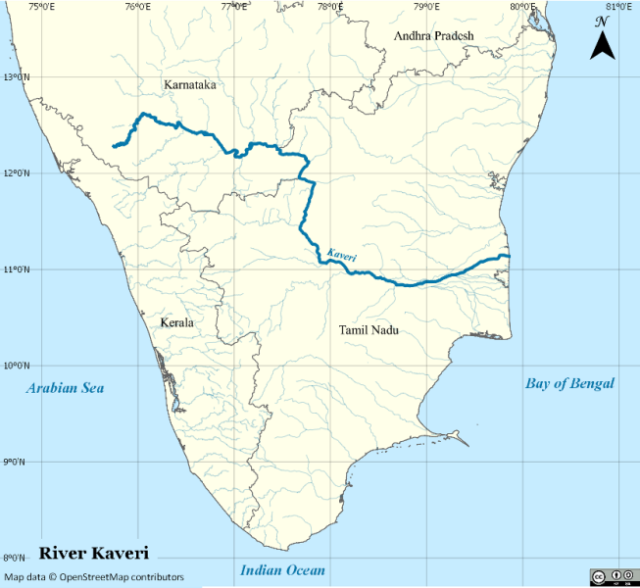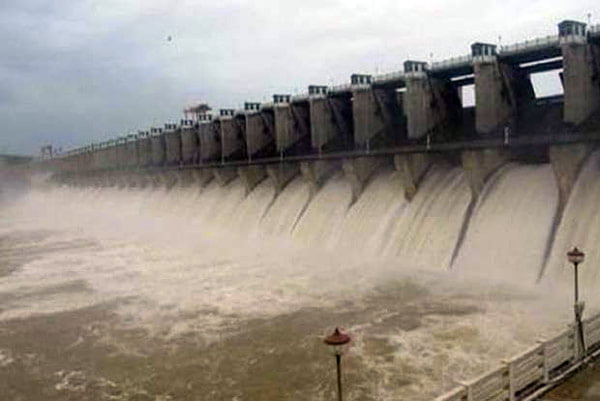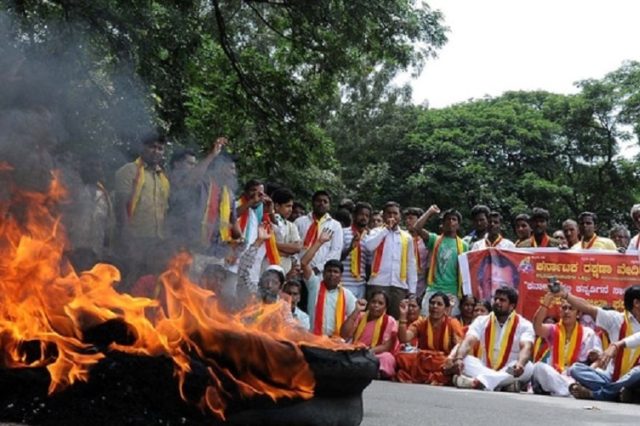By- Nakul Sridhar
The tussle between the two states has its own history, sufficient to warrant an entire chapter in a history book.
The problem exists because Karnataka reserves its right to own and manage the water inside its borders, whereas many towns in Tamil Nadu such as Karur, Erode, Cuddalore, Trichy, etc. depend on the river for irrigation.
Karnataka built four dams on the river Cauvery, which has put the lower riparian state in a very undesirable situation.
Karnataka is like that one kid everybody knew in school. This kid would be achingly selfish about his possessions to the point one would think, “bhai tu rakh le tera PSP, nahi chahiye mujhe. I’ll just play on my dad’s Nokia 1100”.
The issue in hand is certainly on a much larger scale, with the livelihood and water requirements on both sides of the border at stake. The comparison is telling on Karnataka’s attitude though – rebellious, bullying, and definitely selfish.
Going by the reports of the Indian Meteorological Department, more than a third of the country is facing rainfall shortage. The Malnad region where the Cauvery river is situated faced a 29% shortage of rainfall in August.
According to the Karnataka State Natural Disaster Monitoring Centre, all 4 dams built by Karnataka are lower than the 2015 levels (as of September 2016).
In this condition, releasing Tamil Nadu’s share of water would leave Karnataka with a severe shortage of drinking water, a city that is home to 10 million people.
This is in addition to the shortage in irrigation water in Mandya, where the economy is dominated by agriculture. Karnataka has been put, in between a rock and a hard place.
While their argument that, providing water to other states will render them with a shortage of water, is valid (but unverified) – the state has been unready for talks.
Tamil Nadu has also not extended a friendly hand either. Karnataka has a reputation for tussles with neighbouring states over rivers – the Tungabadhra involving Andhra Pradesh, the Godavari and Krishna involving both Telengana and Andhra, and the Mahadayi river involving Goa and Maharashtra.
Why? Why are we are not living as peaceful Indians, sharing what is not really any state’s entitlement, but a national asset?
What disturbs me as a Bengalurean, is how the Kannadigas have chosen to react to this latest episode.
Let’s put this in perspective – Pro-Kannada groups have called for a bandh to protect their interests. What I fail to understand is why they encourage violence inside the state.
When there is a bandh in the state, the norm is only the organization which calls for the bandh observes it to the T. It escapes me as to why we cause damage to our own property in the course of protesting against another state.
The bandh on 9 September has sunk all traces of normal life in Bengaluru. What problem has this bandh solved?
Effigies have been burnt, slogans have been shouted, media attention has been gained – but a solution has still not emerged.
The river is a sentiment for the city – but I am sad to see the waters getting muddier with each decade. I was born in Chennai but now I live and work in Bengaluru. I love both these cities and I can’t wait for the states to figure out a solution.
But more important than that, no more bandhs please. Working professionals like me do not get a holiday anyway.
Image Credits: Google Images
Author Bio-
Nakul Sridhar is a 21 year old budding journalist with ambitions of making it big in the industry. He’s currently working in an MNC but plans to ditch it soon to pursue journalism full time.
Other Recommendations:
http://edtimes.in/2016/08/all-you-need-to-know-about-the-kashmir-and-balochistan-issue-demystified/
http://edtimes.in/2016/09/rahul-gandhi-and-his-khat-sabha-epic-fail-but-perhaps-a-learning-lesson/






































